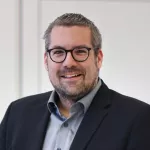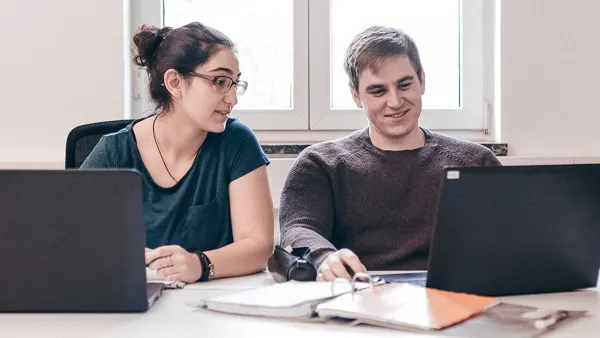At a glance
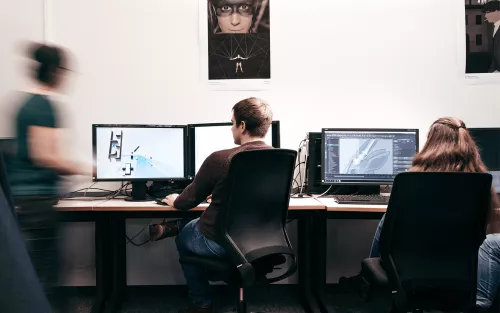
Lehramt oder Ingenieur/in
Mit Informatik und Elektrotechnik kannst Du die Zukunft gestalten. Ob Tracking-App, Fahrzeug-Assistent oder Logistiksystem, unser berufliches wie auch unser privates Umfeld wird immer stärker von elektronischen Geräten und Anwendungen geprägt. Dieser Wandel benötigt Spezialistinnen und Spezialisten, die sowohl elektrotechnische Systeme als auch Software entwickeln und beurteilen können.
Der Studiengang Informatik / Elektrotechnik PLUS Lehramt eröffnet zwei spannende Berufsfelder der Digitalisierung. Nach dem Studium kannst Du entweder als Ingenieurin oder Ingenieur in einem Unternehmen tätig werden oder in das Lehramt an einer gewerblichen Schule einsteigen. Für das Lehramt benötigst Du nach dem Bachelor-Studium noch ein anschließendes Masterstudium an einer Pädagogischen Hochschule.
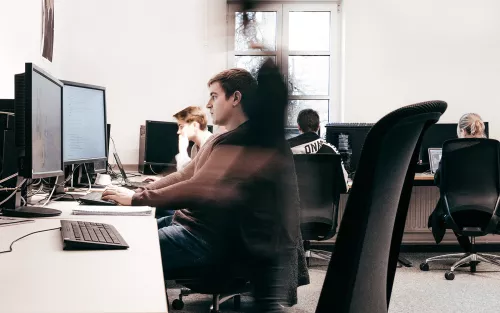
Studieninhalte
Die Studienangebote werden gemeinsam mit der Pädagogischen Hochschule Weingarten und dem Staatlichen Seminar für Didaktik und Lehrerbildung Weingarten entwickelt. Diese umfassen die Kerngebiete der Informatik und der Elektrotechnik. Darüber hinaus werden didaktische und pädagogische Fähigkeiten erworben und in der Praxis erprobt.
Die ersten Semester legen die Grundlagen in den genannten Bereichen. In den höheren Semestern finden sich vertiefende Fächer z. B. zu IT-Sicherheit und zur Automatisierung. Hier können in Wahlmodulen Studieninhalte teilweise selbst bestimmt werden.
Das fünfte Semester hat als Praxissemester zum Ziel, die erworbenen Kenntnisse praktisch anzuwenden und zu vernetzen. Die meisten unserer Studierenden finden ihren Praktikumsplatz bei bekannten und international erfolgreichen Unternehmen der Region. Es besteht zudem die Möglichkeit, das Praxissemester mit einem Auslandsaufenthalt zu verbinden.
Den Abschluss des Studiums bildet die Bachelorarbeit im siebten Semester, bei der es sich in der Regel um ein praxisorientiertes Projekt an der RWU oder in einem Unternehmen handelt.
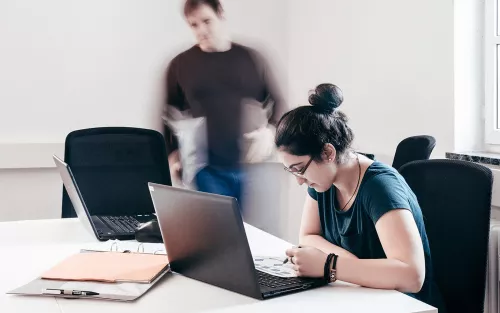
Beruf & Perspektiven
Als Ingenieurin oder Ingenieur kannst Du eine Vielzahl unterschiedlicher Aufgaben bearbeiten:
Sie reichen von der Entwicklung von Hard- und Softwaresystemen über die Administration von Computernetzen und Automatisierungssystemen, bis zu Technologie-Beratung und Vertrieb.
Der Studiengang vermittelt auch Didaktik, Berufspädagogik, und weitere Schlüsselqualifikationen. Das Masterstudium "Höheres Lehramt an beruflichen Schulen" ermöglicht dann den Einstieg in den Lehramtsberuf. Hier sind die Einstellungschancen unabhängig von konjunkturellen Schwankungen hervorragend.
Dates
All eventsDownloads
- Flyer Informatik/Elektrotechnik PLUS Lehramt B.Eng. (PDF, 864.58 KB)Alle Infos kompakt auf einen Blick.
- Ältere Modulhandbücher sind im QM Portal abgelegt.
- Aktuelle SPO Informatik/Elektrotechnik PLUS Lehramt B.Eng. (PDF, 292.36 KB)§43 der Studien- und Prüfungsordnung für die Bachelorstudiengänge - Fassung vom 25. März 2021
- Studien- und Prüfungsordnung für die Bachelorstudiengänge mit Allgemeinem Teil - Diese Änderungssatzung tritt zum WiSe 2023/24 in Kraft.
- Satzung der Hochschule Ravensburg-Weingarten über die Ordnung für das Hochschulzulassungs- und Auswahlverfahren für Bachelor-Studiengänge vom 28. November 2024
Admission
Application ONLY for the winter semester
The Computer Science/Electrical Engineering PLUS Teaching Post study program offers places without NC in the winter semester.
Theapplication deadline is July 15.
This deadline is a cut-off date, which means that your application documents must be received by this date in order to be considered for the allocation of study places.
The start of lectures is the beginning of October.
You can find the exact date in the menu item Dates.
To the online application
Who receives a place?
All applicants with a valid university entrance qualification will be admitted.
Selection procedure - how is the overall grade calculated?
At RWU, this study program is subject to the admission and selection regulations for Bachelor's study programs is applied and carried out on the basis of the application documents. The creation of a shortlist or ranking list is explained below: The applicant's position on a ranking list is determined from the application documents according to the following procedure: Calculation of a weighted overall grade according to the formula
[(average grade of the higher education entrance qualification)+(grades German, mathematics*2 and continued modern foreign language)/4] / 2
If there are more applicants than places, 90 % of the places are allocated by the selection procedure (best overall grade) and 10 % of the places are allocated according to the waiting period.
Improvements to the overall grade
This overall grade can be improved if one or more of the following qualifications are proven:
- Completed vocational training in the field of mechatronics, energy and electrical professions as well as occupational groups according to the admission and selection regulations. Admission and selection regulations: 0,3
- Professional experience in the training occupation of at least 1 year: 0.2. This bonus is limited to 0.2.
Extracurricular achievements, pract. Extracurricular achievements, practicalactivities and recognized previous experience: 0.1 per qualification, max. 2 qualifications can be taken into account:
- Successful participation in the Federal Mathematics Competition (1st,2nd or 3rd prize) or school prize
- Federal voluntary service
- Voluntary ecological year
- Social commitment
- Tutoring as part of an employment of at least 1 year with a public institution or tutoring organization
Succession procedure
Prospective students often apply to several universities and degree courses. As a result, study places regularly become available again because an applicant decides to apply for a different course. These places that become free again are awarded in a succession procedure to those who did not get in first. Places are again allocated according to the ranking list, i.e. first to those with the best overall grade.
Further information on the application and allocation of study places can be found at the Admissions Office.
Compulsory orientation test for teacher training courses
Would you like to apply for a teacher training course? Then you must provide proof that you have completed a special study orientation. A self-test should give you an in-depth insight into the teaching profession and help you to better assess your abilities for this profession. For the degree programs
- Automotive Engineering PLUS Teaching Post
- Computer Science/Electrical Engineering PLUS Teaching Post
- Business Informatics PLUS Teachin Post,
proof is required that you have completed the study orientation - preferably the self-test at www.bw-cct.de. At the end of the guided tour, you will print out a certificate of participation. Please enclose this confirmation with your application documents.
You can apply for a place online via the DoSV portal (dialog-oriented service procedure).
You can access the online application here
Contact & People
General contact details
| Opening hours | by appointment by e-mail in room T 110 |
|---|---|
| Phone | |
| thorsten.weiss@rwu.de | |
| Room | T 110 |
| Postal address |
RWU Hochschule Ravensburg-Weingarten University of Applied Sciences Computer Science/Electrical Engineering PLUS Teaching Post P.O. Box 30 22
88216 Weingarten Germany |
Head of Study Program
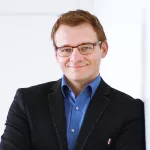
Departmental Office
Professors
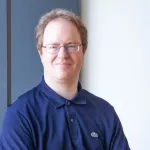
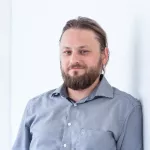
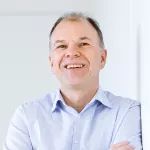
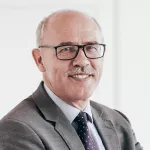
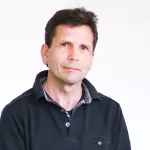

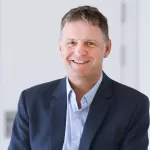
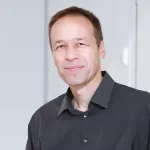
Academic staff
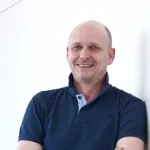
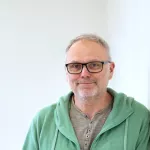
Internship Office

Student Examination Office
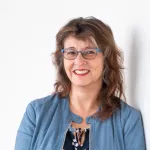
Dean
